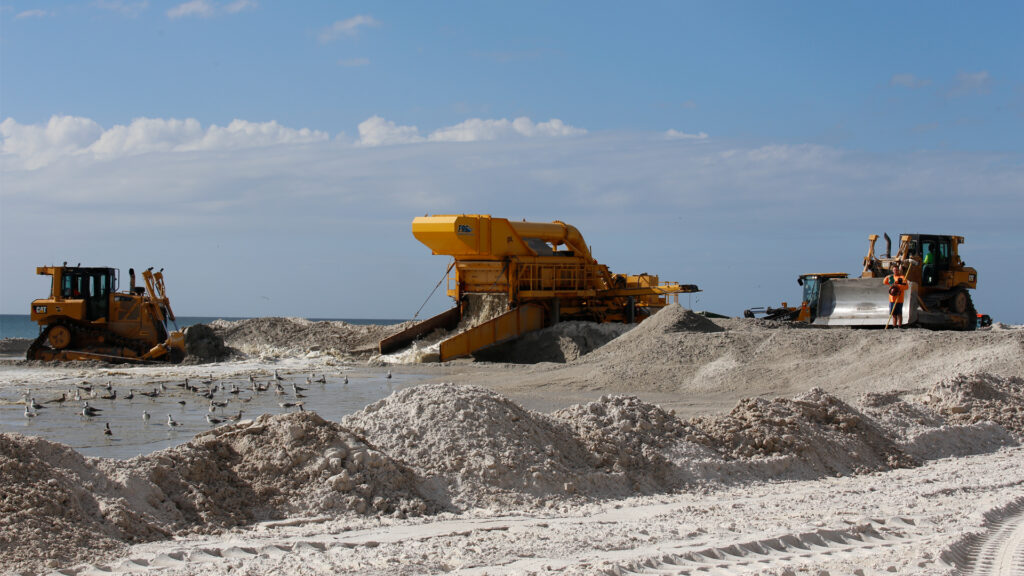A roundup of news items related to climate change and other environmental issues in Florida:
Gov. DeSantis recommends more than $200 million for coastal resiliency and restoration | Spectrum News 13

As part of Gov. Ron DeSantis’ $114 billion budget recommendation for next year, more than $200 million would go toward coastal resiliency and restoration.
According to DeSantis’ budget recommendations for fiscal year 2024-25, the state is recommended to invest more than $157 million for resiliency projects. Per the proposed budget, $100 million is recommended “for implementation of statewide resilience projects and $57 million for resiliency planning and coral reef protection.”
The budget also recommends $50 million to go toward beach renourishment to help rebuild the state’s coastline after damage from hurricanes Ian and Nicole. The governor’s office says the funds will “continue addressing Florida’s critically eroded shorelines.”
Paul Renner teases new energy policy at Capital City Tiger Bay Club | Florida Politics
House Speaker Paul Renner continues to tease an energy bill for the 2024 session, telling reporters that the House is continuing to work through a fine-tuned proposal.
“It’s not 20 things. It’s really some very basic things,” Renner said, adding he is looking to ensure “we are energy independent as much as we can be.”
The speaker said his goal is to ensure that the state has a reliable energy grid to guarantee that businesses and people aren’t left without adequate power. He wants the energy to be quickly produced, domestically sourced and affordable.
Cedar Key leaders move city hall due to threat of hurricanes | WCJB
In response to the growing threat posed by storm surges, Cedar Key City Hall is on the move. The decision to relocate from its longtime downtown location on 2nd Street comes after facing the arduous task of evacuating during every hurricane, a practice that became increasingly difficult given the rising frequency of storms and the city’s vulnerability to storm surges.
Over the past decade, Cedar Key experienced two significant storms, with Hurricane Hermine causing extreme damage to the existing City Hall. Residents and city officials had to endure the inconvenience of operating out of a double-wide temporary space during the lengthy repair process. Subsequently, Hurricane Idalia delivered the largest surge, prompting a full-scale evacuation to the community center, situated at the Indian Shell Mound.
The Indian Shell Mound, serving as a large meeting hall for events such as weddings, proved helpful to transition to during storms. The repetitive process of evacuating and moving back after each hurricane became a significant burden for the city. Cedar Key currently faces the fourth-highest rate of sea level rise in the United States, making it imperative for the community to adapt and mitigate potential damages.
If you have any news items of note that you think we should include in our next roundup, please email The Invading Sea Editor Nathan Crabbe at ncrabbe@fau.edu. Sign up for The Invading Sea newsletter by visiting here.



